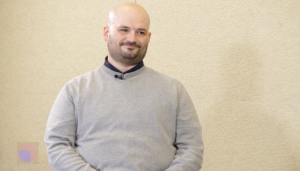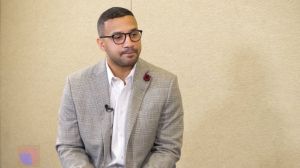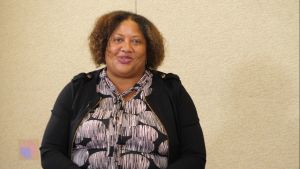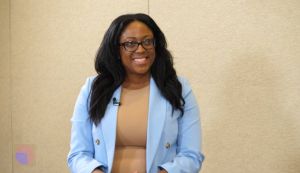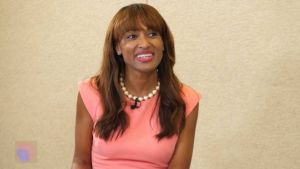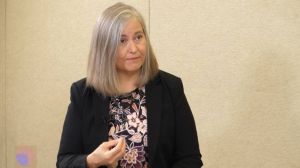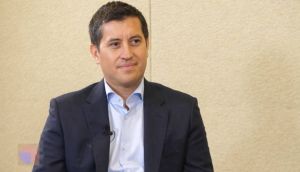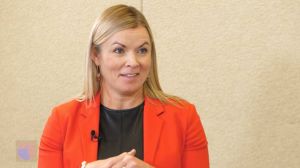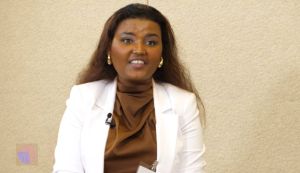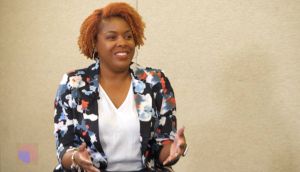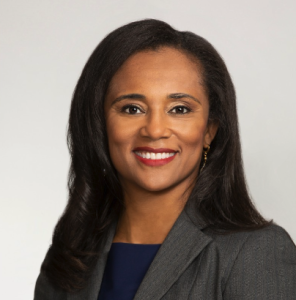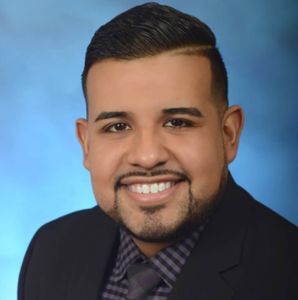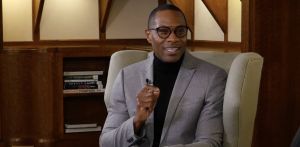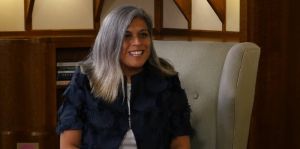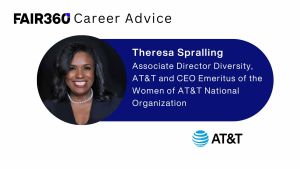Julieta Collart is the Technology Research Associate Principal at Accenture Labs in San Francisco with over 10 years of experience as a systems thinker, entrepreneur and human-centered business designer.
She was born in Honduras and received her undergraduate degree in architecture and owned her own architecture design firm. After deciding to make a career change, she received her MBA from California College of the Arts in design thinking and used her two degrees to work for the San Francisco’s Mayor Office of Civic innovation.
Julieta joined Accenture 1 year ago in San Francisco, where she focuses on applying Strategic Foresight to uncover opportunities and discovers the technology trends of the future. Her passion is to find creative ways to solve problems, and using new technologies to shape the future.
Julieta is an expert as a systems thinker and well-versed in emerging technology. Her passion for technology also expands to non-profit work, where she frequently volunteers for Girls Who Code- to promote women in the STEM fields in all stages of life. She also works with Accenture Labs Technology Vision team exploring emerging and innovative technologies to better the way the world works and lives. Locally, Julieta is a member of the Hispanic Employee Resource group.DI: Can you tell us a little about yourself and your journey to the U.S. from Honduras?
I grew up in San Pedro Sula, Honduras – the country’s second largest city. When it was time for college, I pursued my undergraduate degree in Architecture from Auburn University in Alabama. Afterwards, I moved back to Honduras to open my own design-build architecture firm with my husband. We practiced for about four years. It was hard work, but a lot of fun. Constant learning but also constant challenges. Sometimes good, sometimes not so good – as is usual with any new business.
The decision to move to United States permanently remains the toughest decision I’ve made in my life. It didn’t come lightly, it wasn’t easy, and it encompassed many layers of complexity.
We moved without jobs. Even finding an apartment was difficult as we didn’t have recent rental history in the U.S. It took over two months to find a home. We burned through our savings and maxed out our credit cards, but we were lucky to meet amazing people – now our friends – who helped us in this transition. Finally, on the same day, my husband landed a job and my green card was approved, which meant I could now work in the U.S. There was light at the end of the tunnel and the next chapter of our lives began.
DI: What inspired you to change career paths?
After owning my business for a few years, I realized I most enjoyed interacting with people and helping solve problems. I was seeking a fast-paced environment where decisions are made quickly and where projects are constantly moving. Architecture is slow-paced. It can take months or even years to finish a single project, and I found it lacked the human interaction I was craving.
As a result, I decided to extend my education and pursue my MBA at California College of Arts in San Francisco. My program taught me how to use design thinking and human centered design to create strategies and solve problems. Human centered design, at its core, keeps people as the source for inspiration to bring services and experiences that increase a company’s profits, as well as have a positive social and environmental impact.
I was hooked from the start. The program allowed me to leverage my creative and design brain to solve bigger problems that would allow me to make a greater positive difference in the world.
After my MBA, I worked for the San Francisco Office of Civic Innovation, where I analyzed societal behavioral challenges, such as littering, and designed interventions geared at nudging people’s behavior towards creating a cleaner city. While there, I was introduced to Accenture through a colleague. He explained that at Accenture Labs, and with the Technology Vision team, I could leverage my background in business and skills in strategic foresight. I was intrigued and so I applied.
Cut to today and I’ve been at Accenture Labs for over a year, analyzing emerging technologies and trends to discover business opportunities, and creating long-term strategies that have a positive impact on businesses and society.
DI: Did you have any mentors or sponsors to help guide you along the way?
I have been influenced by many people in my life, the first being my family.
My mom taught me how to use reason, ethics and to always have respect for others. My father taught me to love nature, how to handle snakes and frogs, how to use power tools and drive a tractor. He never treated me differently because of my gender. My grandfather, who grew up in extreme poverty in Honduras, taught me that through hard work, education and ambition, anything is possible. He became a doctor, graduating top of his class in Mexico (and was always an extreme and proud penny-pincher).
In addition to my parents and grandfather, my husband has been my constant support. He is always rooting for me and my career. He helps makes sure our responsibilities at home are split equally so I don’t feel overwhelmed by work/life responsibilities.
I have also learned from my colleagues, professors, friends and others I have met along the way who I lean on for advice and guidance. Stephanie Knabe, whom I met during my MBA, is my closest friend and mentor. We lean on each other to work through professional and personal situations together. Her support has been incredibly valuable in my career shift and growth.
The importance of a mentor cannot be understated. You need them in your career. At Accenture, every person has what we call a “career counselor” who is there to help guide you in your professional journey. My career counselor has helped me navigate my career and encourages me to bring my authentic-self to work.
If you are looking to find a mentor or sponsor and grow your network, join something like an Employee Resource Group (ERG). It’s a great place to start. I am a member of Accenture’s Hispanic ERG, which allows me to grow my personal network within the company and provides opportunities for me to mentor younger employees while celebrating my culture and giving back to the community. My local ERG chapter hosts networking events, celebrates holidays and sparks meaningful conversation surrounding both the successes and challenges that face its members.
DI: What’s the best way for someone to get into tech who has a non-technical background?
There are many different sides to technology. It’s important to understand that you can be in this field regardless of your educational background. Anyone can reinvent themselves to find a role in this growing industry, especially as technology touches more and more of our daily lives. To transition, find someone that can help you master the language (technology is a language!) and help you translate the skills you already have, but might not realize relate. For example, I no longer call myself a ‘designer,’ as I would have during my Architecture career. I now apply ‘design-thinking’. I’m not an ‘architect’ – I’m a ‘systems thinker.’ Technology is a part of every industry, and every skill set can be utilized. Creativity is a huge part of being successful in this field.
DI: With programs such as Women in Tech and Girls Who Code, there’s been an increase in women breaking through a male-dominated industry. But still, women only account for 26 percent of the computing industry, and Hispanic women account for an extremely low one percent. What do you think can help increase the number of Latinas in tech?
This answer is two-fold. One, companies and organizations must engage underrepresented populations at a young age and help them access STEM programs. This will enable younger generations to familiarize themselves with these subjects and better envision a role for themselves in the field.
Two, we must educate parents on the benefits of investing in their children through STEM programs. If parents understand the truly endless possibilities of a career in technology for their children, they will be more likely to inspire and enroll them. At Accenture, I volunteered my time with Girls Who Code to encourage young women to get involved in STEM. My aim was to make tech fun, and I shared my experience to help mentor young girls and build their confidence. I especially loved being a role model to young Latina women, showing them first-hand that they can achieve a successful career in technology.
Engaging underrepresented populations is key. It is so important to emphasize that diversity makes for better teams. Studies show that diverse teams create more innovative solutions – the diversity of thoughts, backgrounds and experiences lead to more inventive outcomes. My hope is that young Latina women embrace their heritage, culture and traditions as positive differentiators in the workplace.


